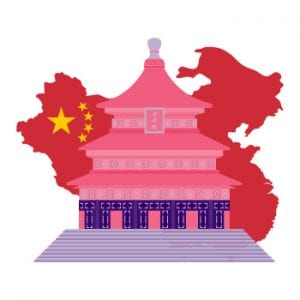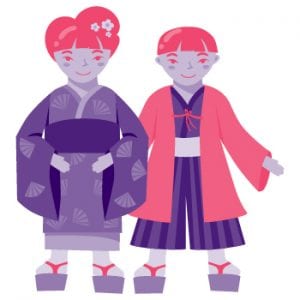
Danger Of Certified Translation Names, Like Arabic, Chinese
Translation is not a piece of cake, especially when you must translate technical things like terminology, certified translation names, official documents, etc. Have you ever wondered how to translate the names of one original language into any foreign language? Words usually have meanings, but the problem is changing names according to their meanings.
These kinds of problems can occur if you are a translator without any training. But in today’s world, you can learn any skill, everything on your own, just through the Internet. Translating names is not that difficult, but this is technical work. So, before writing the meanings of names in any official document of your client, research thoroughly.
If you ruin your client’s official document for government departments, you’re more likely to endanger your translation career. Accurate translation is essential for official documents. Any translation agency will not hire you if you do not guarantee top-notch quality translation to their customers. Providing translation services sounds easy, but there are hurdles in every field.
You do not need to worry about these hurdles; you only need to handle them with patience and hard work. This article will cover certified translation of names, the dangers of certified translation names, what certified translation is, and tips and tricks to satisfy your client.
You do not need to worry about these hurdles all you need to do is handle them with patience and hard work. In this article, we will cover certified translation of names, the danger of certified translation names and we will also cover what is certified translation and tips and tricks to make your client satisfied.


What Is a Certified Translation?
We are unable to use several official papers in their original format. As a result, certified copies of these original documents are required for several reasons. This copy is legitimate since it bears a seal of approval and proof of relative authority.
Documents that have been certified frequently have a temporal limit on their validity. Certifying legal documents, certificates, marriage licenses, and other documents are possible. Documents must meet several requirements to maintain the quality. In common law, states use these certified documents for different purposes. Creating such documents does not come at a high cost.
The primary objective of document copies is to protect the meaning of original documents. We cannot entrust our original documents, especially official documents such as identification cards, birth certificates, death certificates, etc., to anybody.
Common documents are not that important, but official documents that will be used in an educational institution, Monterrey insurance services, immigration services, income tax services, insurance & services, Max services, documents of business affiliation, etc., must undergo a professional translation process.
An authorized person signs these certified copies, which are popular in other countries. There are numerous reasons why you may require certified copies of your documents.
Advantages Of Certified Translation:
A professional translator from a reputable translation company, well-versed in a specific language pair and familiar with official languages, ensures a wide range of services. Overcoming language barriers, a qualified translator guarantees accuracy and meets delivery time for various documents, including technical, financial, and medical reports or medical history. In the translation industry, a skilled translation team addresses specific translation requirements and adheres to quality standards to avoid translation errors, especially in a law firm. The advantages of certified translation include meeting turnaround time expectations, which is essential for legal and immigration offices, and ensuring precision in translating medical documents or annual reports.
As opposed to relying solely on online translation tools that may produce a bad translation, certified translation services provide a true representation of the content. This ensures effective communication with the target market, as a certificate of accuracy accompanies the translated material, instilling confidence in the reliability and quality of the translated content.
Why We Need Translation of Names?
Names are very important to all of us, so if you are a certified translator and do not want to make your client mad because of the wrong translation of his or her name, make sure that the translation name is appropriate according to both languages: the source language and the target language. Every person has the right to pronounce and spell their name properly because these are our identities.
Now, the question is when you have to translate names in your translation career. Firstly, you might need to translate documents regarding a change of name. Sometimes, parents want to change the name of their children because it does not meet their expectations. Secondly, sometimes people want to change their name because they don’t like the name their parents gave them. In both cases, they need a legitimate process for the name change.
If they live in their own country where the native languages are the same, they do not need the translation process. But if the person who wants to change his or her name or his children’s name lives in a different country with a different language, he needs his document translated.
Let’s imagine this: If there is a French name and you need to translate it into the English language, how would you provide your professional service? It is not that hard; all you need to do is simply change the pronunciation according to the dialect of English. The pronunciation must be the same because most people like pronouncing their names in their native language.


How To Do the Translation of Names?
As we have explained in the very simple way above. Now, let’s look at the rules of translating names. Whether there is no hard and fast rule about translating names but here are a few tips to make your work simpler. Here are a few rules (not exactly rules but tips) to translate names into another language.
- Do not translate proper names into another language. The proper name remains the same. No one wants to be called by the wrong name, even if a foreigner calls them. Hence, globally, most translators do not translate names. For example, if you translate any press conference in Spanish with the name of any important person in the United States of America, you should keep it the same.
- If you use a tool to translate a document, it might not translate any names. However, human translators keep the context and essence of the language in the translated document. Hence, there are always exceptions in the translation world. Because rules don’t matter, outcomes make a difference.
All you need to do is translate official documents, meaning your foreign language documents, into any other language. So, you can translate names as an exception in another language per the context.
This is how you translate names into any target language. If you translate any French name into the English language, it is supposed to remain the same in French form. Likewise, if you translate any Spanish name, it should also be in Spanish form in your English translation document, and so on.
The Danger of Certified Translation Names Like Arabic and Chinese
Translating a name varies from country to country, and it is also one of the dangers of certified translation. For example, some names cannot be translated into different dialects as they do not have their translation. So, they need to be in their original form, like French, Spanish, Arabic, etc.
This is the kind of problem you face with translating documents related to the immigration process. For example, suppose someone is emigrating to the United States of America and going to have a green card. In that case, the green card application must be translated into other official documents. Then there is the need for translation of the names for immigration services.
If you’re working with an ATA-certified company, you have to maintain the quality of that ATA-certified translator seal. Then, you need to worry about the translation of names. But it is not impossible to translate Arabic and Chinese names.
If you are doing English translation, you can easily put these Chinese names as they are in the English alphabet to maintain the quality of human translations for an ATA-certified translator seal. As a human translator, it is very difficult to memorize the translation of names, so you can just spell those complicated names in English. Check out our latest post about Certified Arabic Translator: What Does It Cost? Additionally, marriage certificates often require accurate translation, especially for names, ensuring clarity and authenticity in legal documentation.
Another way to save yourself from trouble is to trust the expertise of a known agency. At Certified Translations, we have been translating documents that include names of places, people, areas, and important terms. So, let us handle your translation of names without facing the dangers of any misinterpretation.

Personal Names Translation Dilemma
When it comes to translating personal names for Chinese speakers, the challenge lies in accurately representing them using Latin characters while retaining the essence of the original Chinese characters. Translating personal names involves a delicate balance between phonetic representation and cultural significance. Chinese characters carry deep cultural and historical meanings, often reflecting family heritage or personal values. Therefore, literary translations that involve personal names require careful consideration of both phonetics and semantics to ensure that the translated names resonate authentically with readers while maintaining the integrity of the original Chinese language.
Matt Strach, our expert translator, specializes in French translation, ensuring accuracy and cultural relevance, especially when it comes to product names. Native French speakers rely on Matt’s expertise to accurately convey the essence of product names from their source document into French, preserving their original meaning and appeal. Whether it’s translating legal documents for a notary public or marketing materials for a global audience, Matt’s attention to detail and linguistic proficiency guarantee high-quality translations that resonate with French-speaking audiences.
Modern Translation: Beyond Linguistic Accuracy
In the modern landscape of translation, the form of translation extends beyond linguistic accuracy to encompass cultural sensitivity and brand identity, particularly when translating company names. Whether it’s the prestigious Cambridge University Press or the esteemed Yale University Press, translators navigate the nuances of language to ensure that company names maintain their integrity and impact across cultures. This includes handling numeric names, which may have different connotations in various languages. Modern translation practices emphasize not only fidelity to the source text but also adaptability to diverse linguistic and cultural contexts, ensuring that company names resonate with audiences worldwide.
John Dryden’s translation theories, which have influenced countless translators and publishers including John Benjamins Publishing Company, are integral to the ethos of modern translation practices. In collaboration with esteemed academic institutions such as Princeton University and University of California Press, John Benjamins Publishing Company continues to uphold rigorous standards in translation, evident in publications like “The New York Review”. This collaboration underscores the commitment to excellence in translation, ensuring that scholarly works resonate with readers globally while maintaining the scholarly integrity championed by institutions like Princeton University and University of California Press.
Excellence in Translation for Chinese Readers
The Shanghai Translation Publishing House, renowned for its commitment to excellence in translation, plays a pivotal role in bringing international works to Chinese readers, including translations of “Review of Books”. When translating literary works, particularly those rich in proper names and cultural nuances represented by Chinese characters, the expertise of native speakers is essential. Through meticulous attention to detail, translators ensure that the essence of the original language is preserved, allowing Chinese readers to immerse themselves fully in the narrative while appreciating the cultural subtleties conveyed by proper names and other linguistic elements.
When translating important documents such as those certified by a notary public, it is crucial to employ native speakers to ensure the highest level of accuracy and cultural relevance. Native speakers possess an intrinsic understanding of linguistic nuances and idiomatic expressions, enabling them to convey the content of the original document with precision. Their expertise ensures that the translation maintains the integrity and legal validity of the original text, providing confidence and clarity to all parties involved.
Frequently Asked Questions
Can all names be translated into other languages?
Not all names can be directly translated into other languages. Proper names, especially personal names, often remain in their original form to maintain their identity. However, some names, particularly those with specific meanings, can be translated or adapted to fit phonetic and cultural norms of the target language.
How are company names typically handled in translation?
Company names are usually kept in their original form to preserve brand identity. However, if the name includes descriptive elements or words with specific meanings, these parts may be translated or adapted to ensure cultural relevance and understanding in the target market.
Are there any challenges in translating names with numeric elements?
Yes, names with numeric elements can present challenges, as numbers may have different cultural connotations or levels of significance in various languages. Translators need to consider these factors to ensure the translated name resonates appropriately with the target audience.
How do translators handle personal names with significant cultural or historical meanings?
Translators approach personal names with significant cultural or historical meanings with great care, often opting to keep them in their original form. If a translation is necessary, they strive to maintain the essence and respect the cultural significance of the name while ensuring it is comprehensible in the target language.
Can fictional character names in literature be translated?
Yes, fictional character names in literature can be translated, especially if they carry descriptive meanings, puns, or cultural references that enhance the story. Translators often adapt these names to preserve the intended effect and cultural nuances in the target language, ensuring that the translated names resonate with readers similarly to the original names.

Sorry, the comment form is closed at this time.